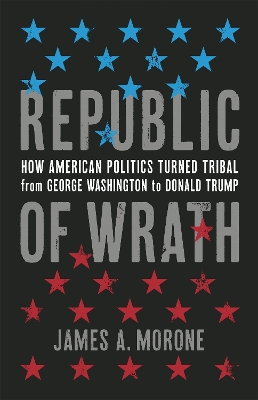Reviewed by Jeff Sexton on
Reading updates
- Started reading
- 7 August, 2020: Finished reading
- 7 August, 2020: Reviewed

American politics today is in an uproar: loud, angry, and bitter, bristling with us-versus-them. This is not exactly new. The history of our political life is teeming with nastiness, violence, intolerance, and cheating. Yet we can sense that there is something genuinely different about the current turmoil. Politics has turned tribal in an unprecedented way.
What changed? The answer, according to renowned political scientist James Morone, lies in the way political parties have operated throughout American history. From the beginning, parties sowed division and discord, but the deepest, most contentious issues facing our society -- questions about who we are -- didn't split along partisan lines. So for a time, parties actually assuaged these conflicts. One side defended slavery but welcomed immigrants; the other side called for abolition but harbored deep hostility for Irish, German, and Italian newcomers.
Then, as the United States underwent a series of profound societal transformations -- from reconstruction, to the explosion of populism, to the Great Migration, to the Civil Rights movement -- the alignment slowly shifted. African Americans switched sides to support the Democrats, the party that had fought tooth and nail against expanding their rights, while the Republicans turned whiter and more nativist. In this sweeping, revelatory work of political history, Morone shows how these changes upended the role of parties, creating a single division that would consume every debate. Rich with absorbing vignettes, Republic of Wrath explains our current state of unrest with bracing clarity -- and tells the story of American politics as we've never heard it before.